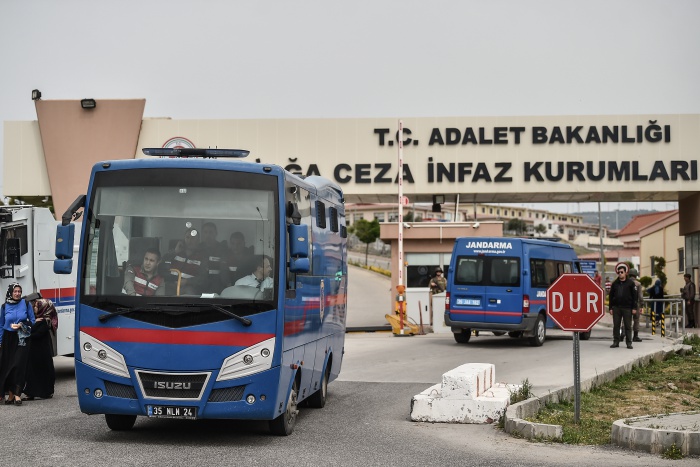Çetin Çiftçi, a journalist incarcerated in Ankara’s Sincan Prison, reportedly tested positive for COVID-19 and was sent back to the prison on May 27 after he had been taken to a hospital, the Stockholm Center for Freedom reported.
His family has not heard from him for three weeks.
Çiftçi’s suffering reveals the plight of incarcerated journalists left to the mercy of the coronavirus pandemic in the aftermath of Turkey’s post-coup purge.
Çiftçi, arrested on Sept. 30, 2019 and sentenced to six years, three months’ imprisonment, served as a parliamentary correspondent for the Bugün newspaper, seized by the government on Oct. 24, 2015 due to its critical stance against the government.
He was convicted for his alleged ties to the faith-based Gülen movement, a group led by US-based cleric Fethullah Gülen that the government of President Recep Tayyip Erdoğan has designated as a terrorist organization.
He was sentenced to six years, three months in prison in February 2020 in a speedy trial. His family, in dire straits, had to leave Ankara and moved to the family home in Malatya, an eastern Anatolian city.
Çiftçi, who has a heart condition, renal failure and high blood pressure, was taken to the prison infirmary after feeling unwell. When his health worsened, he was referred to a hospital in Ankara, where he tested positive for COVID-19.
His wife Selda was denied access to her husband in the hospital and was not informed by the hospital or prison authorities of his health. She was not even allowed to speak on the phone with him. Çiftçi was sent back to prison without his family being informed.
Like tens of thousands of other political prisoners, Çiftçi was unable to benefit from a release bill enacted in mid-April to mitigate the pandemic’s spread in the country’s overcrowded prisons.
Providing the possibility of early parole or house arrest to inmates, the bill explicitly excluded tens of thousands of political prisoners such as politicians, journalists, lawyers, academics and human rights defenders convicted under the country’s controversial and broadly interpreted counterterrorism laws.
Çiftçi earlier suffered heart attacks and spasms in the prison, resulting in three hospitalizations. He also had renal failure and high blood pressure, for which he had started to receive treatment.
On top of that, he later tested positive for COVID-19, a situation withheld from his family by the authorities.
Neither his health conditions nor his infection with COVID-19 persuaded the authorities to release him on early parole or put him under house arrest, amenities granted to many offenders convicted of non-political crimes.
His wife learned of his hospitalization thanks to her diligent efforts. Yet, intimidated by the prison guards, she was unable to contact her husband from May 4 onwards, when he was hospitalized after testing positive.
He was sent back to the prison on May 27 without his family being informed. His wife was kept in the dark by authorities as to the state of his health.
According to the Reporters Without Borders’ (RSF) recently published 2020 World Press Freedom Index in which Turkey was ranked 154th among 180 countries in terms of press freedom, Turkey is the world’s biggest jailer of professional journalists.

